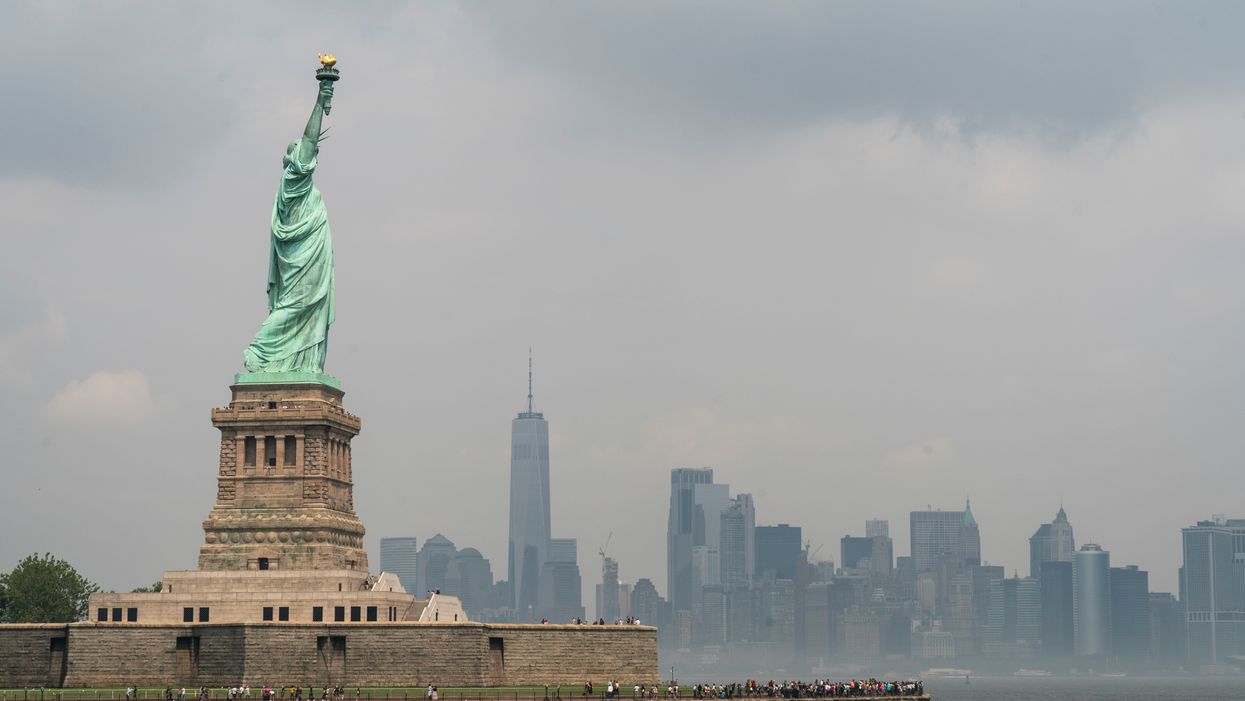Johnson is executive director of the Election Reformers Network, an organization of election experts advancing nonpartisan reforms to American democratic institutions.
Americans have been long talking about different reforms to our election system, but it's a young upstart — ranked-choice voting — that is rocketing to center stage.
In New York City, most people had never heard of ranked-choice voting when the city's Charter Commission announced in April that the reform would be on the November ballot. Yet a week ago, nearly three-quarters of city voters embraced the reform, despite opposition from the NAACP and the City Council's Black, Latino and Asian Caucus. The result tripled the number of Americans living in jurisdictions using RCV to more than 12 million, with many more likely to follow.
In part the appeal of ranked-choice voting is practical; it is a simple, intuitive change that gives citizens more choice and more impact, and ensures election results reflect the will of the majority. In places like New York that rely on runoffs, it also saves taxpayers' money.
But practicalities don't propel popular movements; ranked-choice voting is on the rise across the country because it offers hope, hope to citizens who are fed up with polarization, who want civility and consensus in an era dominated by divisiveness and discord.
The election system in the United States is now the most extreme version of winner-take-all in the world, with a set of rules and incentives that force us to fight win-at-all-cost battles every cycle. Our voting rules, and our campaign finance system, conspire to under represent the majority and to prevent policies supported by vast majorities from becoming law. Ranked-choice voting can't fix the whole mess, and indeed there is a risk that too much hope is being pinned on this reform. But it can certainly help.
Simple plurality voting (where the candidate with the most votes wins even if opposed by the majority) is our norm not because this system is in the Constitution or endorsed by the Founders; instead it was simply all the available technology could manage when we started voting in the 1600s. Countries coming later to democracy have leap-frogged us with innovations that use the moment of voting to learn more about what voters want. And as in so many other areas of life, more data on what people want will mean better outcomes from our elections and our government.
Ranked-choice voting is a needed response to the grassroots mobilization that has significantly increased the number of candidates running for office and the number of crowded races. In 2018, 146 U.S. House primaries had five or more candidates, by the far the most in history, and more than twice the amount of the next closest year; 212 primaries had four or more candidates that year.
This context makes it certain some members of Congress are elected with support of only a fraction of the electorate. Our research found that, on average, members who entered the House after winning a primary with less than 35 percent are significantly more partisan than those who win with majority support. In other words, the mechanics of how we vote help create the growing extremism we all decry.
Following Maine's ground-breaking referendum for RCV in 2016, Massachusetts and Alaska will likely be the next states to vote on this system, in 2020. The reform is also gaining ground in cities and counties in states like Colorado and Utah that passed laws providing for it at the municipal level. And a recently introduced bill in Congress puts RCV elections on the horizon for all House and Senate primary and general elections.
Another Election Day result last week should put an end to the mistaken assumption among Republicans that RCV is not for them. In Kentucky, the GOP would almost certainly still control the governorship if RCV had been in place. Instead, Libertarian John Hicks was able to play the classic spoiler role, watching in amusement as his 28,000 votes tipped the election to Democratic challenger Andy Beshear over incumbent Matt Bevin by 5,000 votes. A Hicks Facebook post boasted of his spoiler role and mocked the GOP for not supporting the RCV system that would have given them the win.
Other Republicans who have seen first-hand how a divided primary can hurt the party are leading the charge for this reform.
After losing a three-way primary to the more conservative Corey Stewart, who was then soundly beaten in the general election, Virginia GOP Senate candidate Nick Freitas became the lead sponsor of RCV legislation in the Virginia Legislature. And former Massachusetts GOP Chairwoman Jennifer Nassour is now a vocal RCV advocate after watching her party primary pick the least electable of three challengers to Elizabeth Warren.
At Election Reformers Network, we have seen overseas how reforming election rules can reduce this polarization, while increasing voter confidence and improving public policy. This perspective gives us faith that Americans are not irretrievably divided — faith that reforms like ranked-choice voting can lead us to a better politics.
Ranked-choice voting used to be a "nice to have" favored by academics and small liberal cities. In an atmosphere of increasing political extremism, and in the context of much more crowded elections, ranked-choice voting is now a "need to have" for both parties and for our country.





















